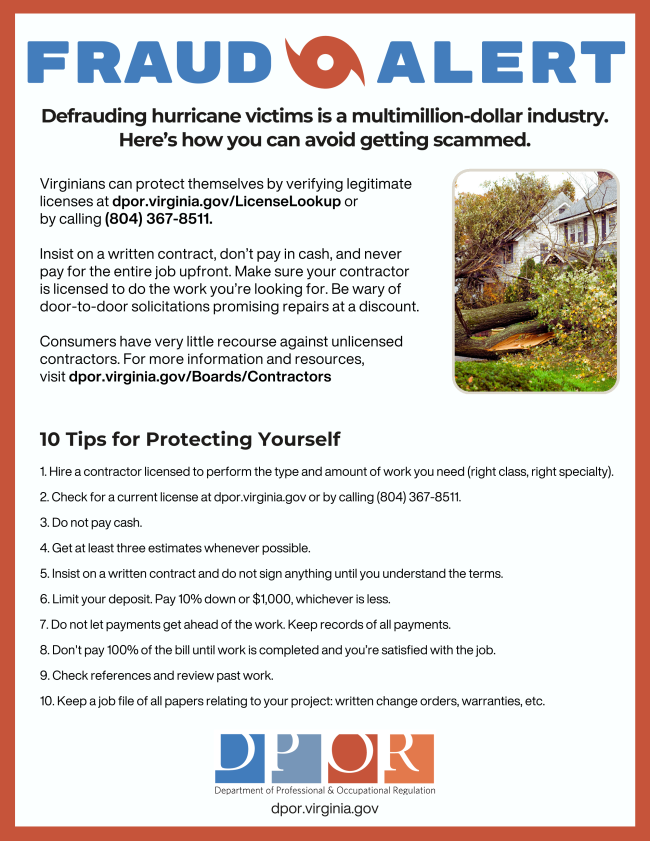Disaster Recovery: Avoiding Fraud
Rebuild with a Licensed Contractor
Beware of fraudulent and unlicensed contractors in the aftermath of natural disasters. Scammers frequently attempt to profit from disasters by taking advantage of individuals who are rebuilding.
Consumers can best protect themselves by verifying a prospective contractor has a legitimate license in Virginia using DPOR’s License Lookup Tool or by calling (804) 367-8511.
Be wary of door-to-door solicitations promising repairs at a discounted price. Insist on a written contract, don’t pay in cash, and never pay for the entire job upfront. Make sure your contractor is licensed to do the work you’re looking for. Help us spread the word and keep our communities safe by sharing our Fraud Alert Flyer. For more information and additional consumer resources, visit the Virginia Board for Contractors.
Consumers have very little recourse against unlicensed contractors. The Board for Contractors offers consumer resources, including the comprehensive guide What You Should Know Before Hiring a Contractor.
When hiring a contractor, consumers should:
- Hire only licensed contractors--qualified to do your job (right class, right specialty).
- Check for a valid contractor license using License Lookup or by calling (804) 367-8511.
- Check references and review past work.
- Get at least three estimates whenever possible.
- Insist on a written contract and do not sign anything until you understand the terms.
- Limit your deposit. Pay 10 percent down or $1,000, whichever amount is less. (Unless the job requires custom-made items/special orders, then limit to 30% of the total value of the contract.)
- Do not let payments get ahead of the work.
- Don't pay 100% of the bill until the work is 100% complete and you are satisfied with the job.
- Do not pay cash.
- Keep records of all payments and documents relating to your project (change orders, warranties, etc.).
SCAM SIGNALS:
- High-pressure or scare tactics (“offer good today only”)
- Over-friendly sales pitches
- “Material left-over”
- Escalating prices
- Deals that sound too good to be true


